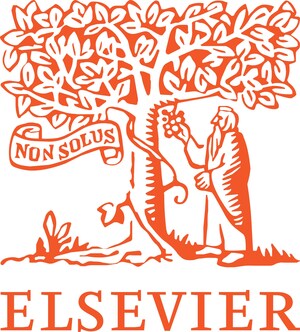AMSTERDAM, March 25, 2020 /PRNewswire/ -- Over the past two decades, the world has faced several infectious disease outbreaks. Ebola, Influenza A (H1N1), SARS, MERS, Zika virus and currently COVID-19 have had a massive global impact in terms of economic disruption, strain on local and global public health resources and, above all, human health.
Using Elsevier SciVal and Scopus data from 1996 to 2018, Elsevier experts analyzed scholarly output, trending topics and top research organizations working to strengthen our understanding of and response to infectious disease outbreaks.
This infographic features the main findings; below are some highlights:
- Emerging infectious disease research has seen an average growth of 6.9% annually over the past decade.
- Following an outbreak of a disease, we see a sharp spike in disease-specific publications, showcasing the research community's remarkable ability to quickly respond to public health needs. This is evidenced by a rise in publication counts following outbreaks of SARS, Influenza A (H1N1), Ebola and Zika virus.
- Among research aimed at understanding new outbreaks, a rise in publications specifically related to health security suggests an increased focus on public health preparedness.
- Seven of the top 10 research institutions publishing health security research between 2014 and 2018 are governmental organizations.
These and further findings will be presented during a free webinar on Monday, 30 March, at 17:00 CET
In the webinar presentation, Dr. Bamini Jayabalasingham, Senior Analytical Product Manager at Elsevier, and Chris James, Senior Product Manager at Elsevier, will explain how the research was conducted to uncover trends in infectious disease outbreaks research, the various governmental bodies involved and the ways to identify health security research.
Scopus is a source-neutral abstract and citation database curated by independent subject matter experts. It places powerful discovery and analytics tools in the hands of researchers, librarians, institutional research managers and funders.
SciVal is an analytics solution that provides comprehensive access to the research performance of over 14,000 research institutions and their associated researchers from 230 nations worldwide. SciVal enables visualizations of research performance outputs and trends; SciVal runs on Scopus data.
Notes for editors
To schedule interview with Elsevier data experts or to access underlying datasets contact: Sacha Boucherie at s.boucherie@elsevier.com ; Christopher Capot at c.capot@elsevier.com or newsroom@elsevier.com.
About Elsevier
Elsevier is a global information analytics business that helps scientists and clinicians to find new answers, reshape human knowledge, and tackle the most urgent human crises. For 140 years, we have partnered with the research world to curate and verify scientific knowledge. Today, we're committed to bringing that rigor to a new generation of platforms. Elsevier provides digital solutions and tools in the areas of strategic research management, R&D performance, clinical decision support, and professional education; including ScienceDirect, Scopus, SciVal, ClinicalKey and Sherpath. Elsevier publishes over 2,500 digitized journals, including The Lancet and Cell, 39,000 e-book titles and many iconic reference works, including Gray's Anatomy. Elsevier is part of RELX, a global provider of information-based analytics and decision tools for professional and business customers. www.elsevier.com
Media contacts
Sacha Boucherie
Elsevier Communications, Europe
s.boucherie@elsevier.com
+31-6-3066-7129
Christopher Capot
Elsevier Communications, US
c.capot@elsevier.com
+1-917-704-5174
Photo: https://mma.prnewswire.com/media/1137570/Elsevier_Infographic.jpg
Logo: https://mma.prnewswire.com/media/754760/Elsevier_Logo.jpg






Share this article